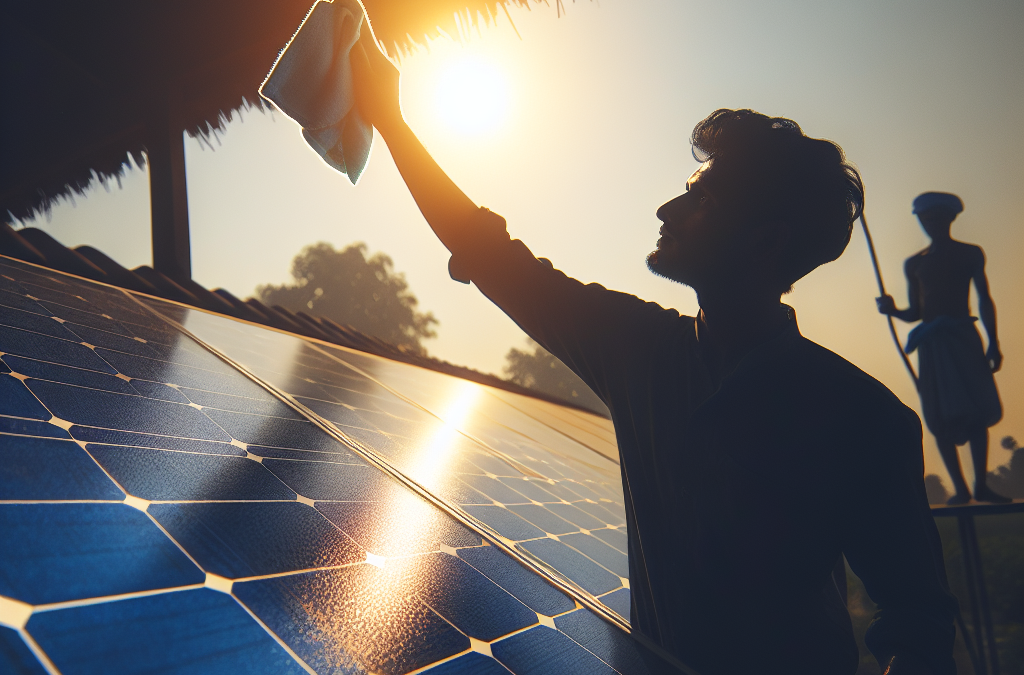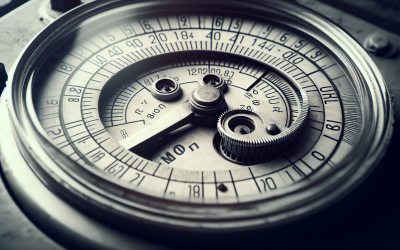So, you finally decided to go solar and have installed a brand-new solar panel system on your roof. Congratulations! Now, as you sit back and enjoy the benefits of renewable energy, you might be wondering, what kind of maintenance will my solar panel system require? Well, fear not, because in this article, we will break down all the essential maintenance tasks you need to know to keep your solar panels running smoothly and efficiently for years to come. From routine cleaning to occasional inspections, we’ve got you covered!
Regular Cleaning
Frequency of Cleaning
Regular cleaning is essential for maintaining the efficiency and longevity of your solar panel system. The frequency of cleaning will depend on various factors, such as your location, environmental conditions, and the amount of dust or debris that accumulates on your panels. In general, it is recommended to clean your solar panels at least once every six months. However, if you live in an area with heavy pollution or experience frequent dust storms, more frequent cleaning may be necessary.
Cleaning Techniques
When it comes to cleaning your solar panels, it is important to use the correct techniques to avoid damaging the panels or the system. Start by rinsing off any loose dirt or debris with a gentle stream of water. Avoid using abrasive materials, as they can scratch the surface of the panels. If there are stubborn stains or bird droppings, you can use a mild soap solution along with a soft sponge or cloth to gently clean the affected areas. Remember to rinse thoroughly to ensure there is no residue left behind. It is important to avoid using high-pressure washers or harsh chemicals, as they can cause irreversible damage to your solar panels.
Inspection and Monitoring
Visual Inspection
Regular visual inspections are crucial for identifying any potential issues with your solar panel system. Start by visually inspecting the panels for any cracks, chips, or discoloration. Check the mounting brackets and connections for any signs of wear or corrosion. Additionally, inspect the wiring and junction boxes for any loose connections or exposed wires. If you notice any abnormalities or damage during your visual inspection, it is recommended to seek professional assistance for further evaluation and repair.
Electrical Inspection
To ensure the proper functioning of your solar panel system, it is important to perform regular electrical inspections. Check the performance of each panel by evaluating the voltage and current output. You can use a multimeter to measure these values and compare them to the system’s specifications. Additionally, check the performance of the inverter and monitor any error codes or warning lights that may indicate a potential issue. If you notice any significant deviations from the expected values or any alarming error codes, it is advisable to contact a qualified electrician or solar panel technician for further assessment and repairs.
System Monitoring
In addition to regular inspections, implementing a system monitoring solution can provide real-time data and alerts about the performance of your solar panel system. Various monitoring systems are available, ranging from basic mobile apps to advanced web-based platforms that offer detailed insights into your system’s performance. These monitoring systems can help you track the energy production, identify any underperforming panels, detect faults or malfunctions, and ensure the overall health of your solar panel system. Make sure to choose a system monitoring solution that fits your specific requirements and provides the necessary features for easier maintenance and troubleshooting.
Inverter Maintenance
Cleaning and Dusting
The inverter is a vital component of your solar panel system and requires regular maintenance to ensure optimal performance. Start by cleaning the exterior of the inverter using a soft cloth or sponge slightly dampened with water. Gently wipe away any dust or dirt that may have accumulated on the surface. Make sure to avoid using abrasive materials or excessive moisture that can damage the unit. Additionally, keep the area around the inverter clear of any obstructions that could hinder proper ventilation, as overheating can impact its efficiency.
Regular Inspections
In addition to cleaning, regular inspections of the inverter are essential to identify any signs of malfunction or wear. Check for any loose connections or frayed wires and tighten or replace them as necessary. Monitor the inverter’s display or interface for any error codes or warnings that may indicate a problem. If you notice any unusual noises, burning smells, or persistent error messages, it is crucial to contact an experienced technician to assess and address the issue promptly.
Testing and Calibration
To ensure the inverter is functioning optimally, periodic testing and calibration are necessary. Consult the manufacturer’s instructions or seek professional assistance to perform these tests, as they may require specialized equipment and knowledge. The testing process typically involves checking the inverter’s voltage conversion efficiency, voltage regulation, frequency accuracy, and response to varying load conditions. Calibrating the inverter can help fine-tune its settings to maximize energy production and protect your solar panel system from unnecessary strain or damage.
Battery Maintenance
Checking and Cleaning
Some solar panel systems are equipped with battery storage to store excess energy for later use. If your system includes batteries, regular maintenance is crucial to maximize their lifespan and performance. Start by visually inspecting the batteries for any signs of damage, such as bulging, leaks, or corrosion. If you notice any issues, it is advisable to contact a professional for assistance. Clean the battery terminals and connections using a mixture of baking soda and water to remove any corrosion or buildup. Be sure to follow proper safety precautions and consult the manufacturer’s guidelines for specific battery maintenance instructions.
Testing and Replacing
To ensure the reliability and efficiency of your battery storage system, regular testing is necessary. Use a voltmeter to measure the voltage output of each battery and compare the values to the manufacturer’s specifications. If any battery consistently shows a significant drop in voltage or fails to hold a charge, it may be necessary to replace that particular battery. Consider consulting a professional to determine the appropriate replacement batteries and to ensure proper installation and integration into your solar panel system.
Panel Replacements
Identifying Damaged Panels
Over time, solar panels may become damaged or degraded, impacting their efficiency and energy production. Regular visual inspections can help identify any damaged panels. Look for signs such as cracks, chips, discoloration, or hotspots on the panels’ surface. In some cases, damaged panels may also exhibit reduced energy output compared to the rest of the system. If you notice any of these signs, it is crucial to arrange for a professional assessment to determine if panel replacement is necessary.
Replacing Faulty Panels
If you determine that a panel needs to be replaced, it is important to work with a qualified professional to ensure proper installation and integration into your existing solar panel system. They will assess the compatibility and specifications of the new panel, ensuring it matches the other panels’ electrical characteristics. Additionally, they will handle the necessary wiring and mounting adjustments to ensure seamless integration and optimal system performance. By replacing faulty panels promptly, you can maintain the overall efficiency and energy production of your solar panel system.
Arranging Professional Assistance
Replacing solar panels should be done by experienced professionals who have the knowledge and expertise in handling the delicate components of the system. Contact reputable solar panel installation and maintenance companies to arrange for a professional assessment and replacement if needed. They will be able to guide you through the process, provide recommendations based on your specific needs, and ensure that the new panels are installed correctly and functioning optimally.
Wiring and Connections
Inspecting and Tightening Connections
Regular inspections of the wiring and connections in your solar panel system are crucial for preventing malfunctions or performance issues. Visually inspect all the cables and connections for any signs of damage, wear, or looseness. Tightly secure any loose connections and replace any damaged cables or connectors as necessary. Additionally, ensure that the connections between panels, inverters, and batteries are secure and properly tightened to minimize resistance and ensure efficient energy transfer.
Cable Management
Proper cable management is essential for maintaining the integrity and safety of your solar panel system. Arrange and secure the cables neatly to avoid any entanglement or strain on the connections. Use appropriate cable management accessories such as clips, zip ties, or conduit to organize and protect the cables from environmental factors, pests, or accidental damage. Periodically check the cable management system for any signs of wear or damage and make necessary repairs or replacements to ensure the longevity and reliability of your solar panel system.
Repair or Replacement
If you notice any damaged or frayed wires during your inspections, it is important to address them promptly to prevent further issues. Depending on the severity of the damage, you may be able to repair the wire by stripping the damaged section and reconnecting it securely. However, if the damage is extensive or affecting the integrity of the wire, it may be necessary to replace the entire wire to maintain the safety and functionality of your solar panel system. Consult with a professional electrician or solar panel technician to determine the most appropriate course of action and ensure that all repairs or replacements adhere to safety standards and local regulations.
Ground Mount Maintenance
Checking Foundation and Supports
If your solar panel system is installed on the ground, regular maintenance of the foundation and supports is essential to ensure stability and longevity. Inspect the foundation or mounting points for any signs of shifting, settling, or erosion. Look for cracks or damage in the concrete or posts that may compromise the integrity of the system. Ensure that all supports and brackets remain tightly secured and aligned, as any structural issues can affect the performance and safety of your solar panel system.
Inspecting Ground Mount System
Apart from the foundation, it is important to inspect the entire ground mount system for any signs of wear, damage, or loose connections. Check the rails, clamps, and fasteners for rust, corrosion, or any signs of degradation. Inspect the tilt angles and tracking mechanism if applicable, ensuring smooth and accurate movement. Regular inspections and maintenance of the ground mount system will help identify any potential problems and allow for timely repairs or replacements, ultimately ensuring the optimal performance of your solar panel system.
Maintaining Tracking System
If your ground mount system includes a tracking system to optimize solar panel orientation, it is crucial to regularly maintain and calibrate it. Inspect the tracking mechanism for any signs of wear or malfunction. Clean the sensors and ensure they are free from any obstructions or debris, as they play a crucial role in accurate tracking. Test the tracking system’s movement and alignment periodically to make sure it is functioning properly. If you notice any issues or deviations, contact the manufacturer or an expert technician to assess and repair the tracking system to maximize the system’s energy production.
Roof Mount Maintenance
Inspecting Roof Structure
For roof-mounted solar panel systems, regular inspections of the roof structure are essential to ensure its integrity and the safety of the solar panel installation. Visually inspect the roof for any signs of damage, including cracked or missing shingles, sagging areas, or leaks. It is recommended to perform these inspections at least once a year or after severe weather events. Address any roofing issues promptly to prevent water damage or structural problems that could negatively impact your solar panel system.
Inspection of Mounting Hardware
In addition to the roof structure, inspecting the mounting hardware is crucial for maintaining the stability and effectiveness of your solar panel system. Check all the brackets, rails, and fasteners for any signs of rust, corrosion, or wear. Ensure that all fasteners are tightly secured and that there are no loose connections. If you notice any damaged or degraded hardware components, it is essential to replace them promptly to prevent any potential system failures or safety hazards.
Sealing and Waterproofing
Proper sealing and waterproofing are vital for the long-term performance and protection of your roof-mounted solar panel system. Inspect the seals and weatherproofing materials around the mounting brackets, wiring entry points, and junction boxes for any signs of wear, cracks, or gaps. Reseal or replace these materials as necessary to maintain a watertight seal and prevent any moisture penetration that could lead to damage or electrical hazards. Regularly inspecting and maintaining the sealing and waterproofing elements will help ensure the structural integrity and longevity of both your solar panel system and your roof.
Seasonal Maintenance
Pre-Winter Prep
As the winter season approaches, certain maintenance tasks are necessary to prepare your solar panel system for the colder months. Clean the panels and remove any leaves, debris, or snow that may accumulate and hinder their performance. Trim any overhanging branches that could potentially fall on your panels during heavy snow or ice storms. Check the integrity of the roofing and mounting hardware to ensure they can withstand the additional weight from snow loads. It may also be beneficial to consult with a professional to assess if any insulating measures need to be taken to prevent ice dams or snow buildup on the panels.
Post-Winter Maintenance
After winter, it is important to perform a thorough inspection of your solar panel system to identify any potential damage or performance issues caused by the colder months. Inspect the panels for any cracks, chips, or damage that may have occurred due to snow removal or ice buildup. Check the mounts, brackets, and connections for any signs of wear or corrosion caused by the harsh weather conditions. Clean the panels to remove any residual dirt or debris and ensure optimal energy production. If you notice any issues during this inspection, contact a professional for advice or repairs.
Summer Maintenance
During the summer months, your solar panel system is likely to experience its peak energy production. However, it is still important to perform regular maintenance tasks to ensure optimal performance. Inspect the panels for any signs of damage or overheating, especially during heatwaves or periods of prolonged high temperatures. Clean the panels more frequently to remove any dust or pollen that may accumulate and reduce their efficiency. Additionally, monitor the performance of the system regularly to detect any issues or abnormalities, such as reduced energy generation or errors displayed on the inverter. By performing these summer maintenance tasks, you can help maximize the energy output and longevity of your solar panel system.
Professional Service
Annual Maintenance Contracts
Opting for an annual maintenance contract with a reputable solar panel maintenance company can provide you with peace of mind and ensure the longevity and optimal performance of your solar panel system. These contracts typically include regular inspections, cleaning, testing, and necessary repairs or replacements. By partnering with professionals, you can benefit from their expertise, specialized tools, and knowledge of industry standards. They can also help you stay up to date with the latest technological advancements and ensure that your system continues to operate efficiently and safely.
System Upgrades
As solar panel technology continues to evolve, you may consider upgrading certain components of your system to take advantage of new features or improved efficiency. Professional service providers can offer valuable insights and recommendations regarding system upgrades. Whether it’s upgrading to more efficient panels, adding battery storage to your system, or integrating advanced monitoring and control systems, professional technicians can guide you through the process, assess the compatibility with your existing system, and ensure a seamless upgrade while adhering to safety standards and local regulations.
Warranty Support
Solar panel manufacturers typically provide warranties for their products, covering specific components and performance guarantees for a certain period. Professional service providers can assist you with warranty support, helping you navigate the warranty terms, documentation, and contacting the manufacturer in case of any warranty claims or issues. They can also perform any necessary repairs or replacements covered under the warranty, saving you time and effort. By leveraging their expertise and experience, you can ensure that you fully utilize your warranty and protect your investment in solar panel system maintenance.









